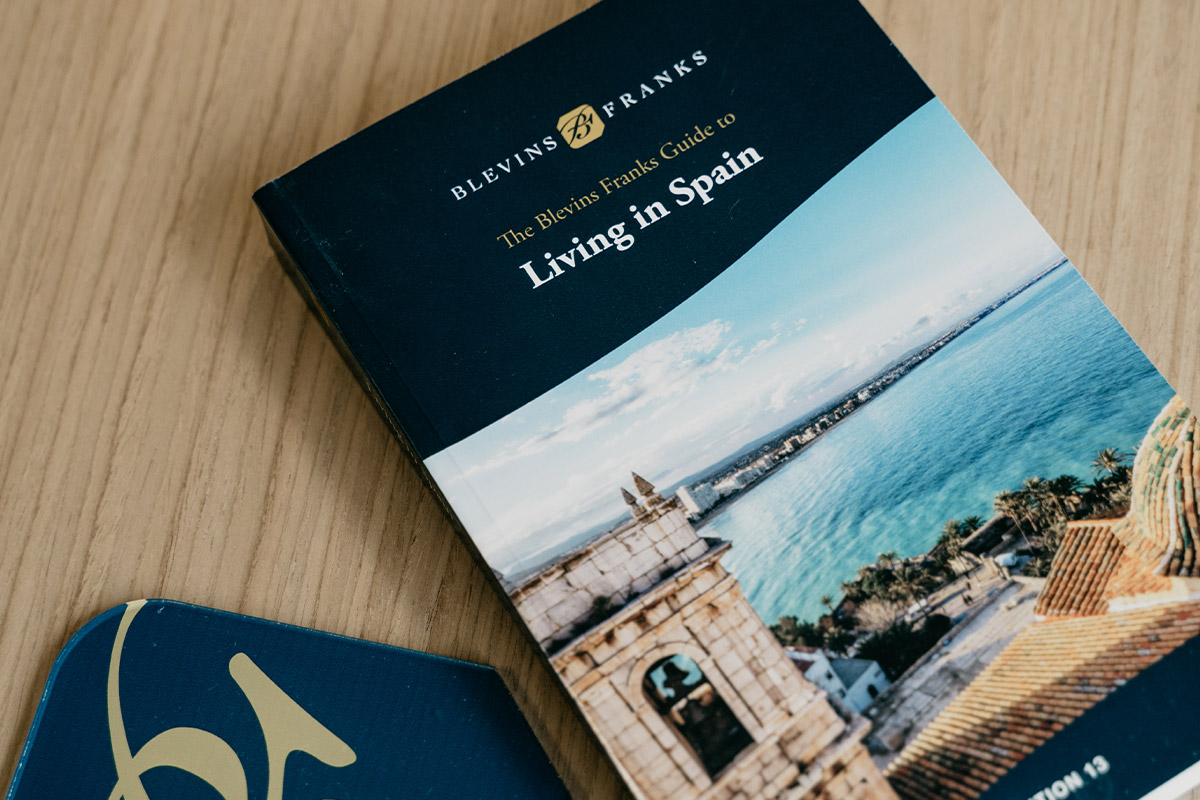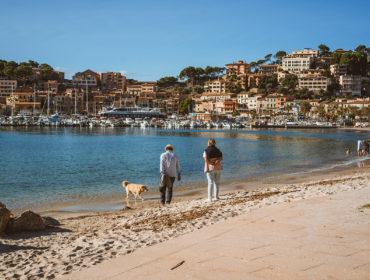
Setting up home in Mallorca is always a pleasure, whether you plan to live here permanently or enjoy regular visits to this beautiful island. It has so much to offer in terms of way of life, climate, nature, entertainment, food and drink, pastimes etc. And of course there are some lovely properties here and opportunities to personalise them to suit your lifestyle.
You may already have a check list of jobs as you settle into the island, but it is important to include reviewing your financial planning on that list. You need to research and understand the Spanish tax regime to see where you need to make changes to your wealth management. And it is important to ensure it is personalised and designed for you, taking your current and expected future circumstances into account together with your time horizon, aims for yourself and your family, and risk profile.
Blevins Franks
Unsure of the Spanish tax system? For all your financial concerns, Blevins Franks have the answers.
Gran Vía Puig de’s Castellet 1,
Santa Ponça +34 971 719 181
How taxes work in Spain
Tax residence
Tax residency in Spain is not just about day counting. You could be resident even if you do not live in Spain but your spouse and/or minor dependent children do, or if your centre of economic interests is there. It is important to be clear on your situation and plan around it accordingly. The Spanish tax office has increased inspections on tax residency, with some wealthy people being caught out by the “centre of economic interests” rule.
You also need to know how your home country’s residence rules could continue to apply to you. For example, UK nationals need to understand the UK Statutory Residence Test and make sure you apply the rules correctly.
As a resident of Spain, you are liable for Spanish income, capital gains and wealth taxes on your worldwide assets and subject to Spanish succession and gift tax rules, as well as annual reporting of assets – so make sure you are prepared. Establish how your wealth is affected by these taxes and what mitigation opportunities are available.
Income tax
At the time of writing (June 2020), income tax rates for Islas Baleares residents range from 19% to 47.5%. However, the 2020 Spanish general budget has not yet been approved and, once it is, the top rate could be higher.
Savings income benefits from lower rates, which are currently 19%, 21% and 23%. The 2020 budget may introduce an additional rate for higher income.
Wealth tax
Spain currently imposes an annual wealth tax, which generally hits those with worldwide assets worth over €1 million – there is a personal allowance of €700,000 plus up to €300,000 for a resident’s main home.
In the Balearic Islands rates start at 0.28% and rise to 3.45% for wealth over €10,909,915. Take personalised, specialist advice to see how you could legitimately lower your wealth tax liability.
The property lawyers in Mallorca you’ll want by your side
Trust in these real estate lawyers to get you through buying a property in Mallorca and happily living on the right side of the Spanish law.
Succession and gift tax
The rates and allowances for Spanish succession and gift tax depend on who the beneficiary is, where the deceased and the beneficiary are resident, and where the assets are located. Rates, allowances and exemptions can vary considerably per region, so seek advice from an adviser based locally on the island to understand who within your family will be affected and what you can do to mitigate it.
Tax planning
You can often use compliant arrangements to lower taxes on investment income, assets, pensions and estate. Depending on your situation, you may be surprised at how much tax you can save. This is not an area for ‘do it yourself’ financial planning, you do need specialist guidance.
Estate planning
Besides succession and gift tax, you also need to understand how Spanish succession law will affect your family. The ‘forced heirship’ rules require a parent to leave two-thirds of their estate to their children, even by-passing the surviving spouse.
However, under the EU succession regulation ‘Brussels IV, foreign nationals can elect, via their Will, for the law of their country of nationality to apply to avoid Spanish forced heirship rules. This only applies to succession law, not tax.
Your savings and investments
The sooner you can review your savings and investments, the better. You need to make sure they are structured in the most suitable way for your new circumstances and objectives, always taking your appetite for risk into account.
British expatriates also need to think about currency. Once you are living in Mallorca and spending Euros daily, keeping savings in Sterling makes your income vulnerable to exchange rate fluctuations. Look for structures that let you diversify by holding investments in multiple currencies, with flexibility to choose the currency of withdrawals.
At the same time, you want them to be structured in the most tax efficient way for Spain, as well as to meet your estate planning wishes.
Moving to Mallorca? 7 questions that could save you money
If you are thinking of moving to Mallorca, get a complete overview of how tax regulations work for foreigners from trusted experts Blevins Franks.
Pensions
Pensions are another key issue for you to consider for your future in Mallorca. There are many options available for UK retirees these days, but you need to weigh them up carefully, looking at how they work for you and the Spanish tax implications. If you have not yet started drawing your pension, seek advice before you do.
Many British expatriates benefit from transferring UK pension funds into a Qualifying Recognised Overseas Pension Scheme (‘QROPS’), or by reinvesting a lump sum in tax-efficient arrangements for Spain. However, there is no one-size-fits-all solution for a secure retirement, so regulated, personalised pensions advice is essential. Beware that pension options for UK expatriates may change after the Brexit transition ends on 31st December 2020.
Careful and early financial planning can help you make the most of what Mallorca has to offer. The sooner you carry out your tax and wealth management planning, the sooner you can relax and get on with enjoying your new life on this beautiful island.
Cross-border wealth management is a complex area, so take specialist advice to secure the best results. Blevins Franks has 45 years’ experience advising British expatriates in Spain and can guide you through the various aspects of moving to and living in Spain, providing holistic strategic financial planning advice on tax mitigation, estate planning, investments and pensions.
Tax rates, scope and reliefs may change. Any statements concerning taxation are based upon our understanding of current taxation laws and practices which are subject to change. Tax information has been summarised; an individual is advised to seek personalised advice.
By Cathal Rochford, Partner, Blevins Franks
Address details










